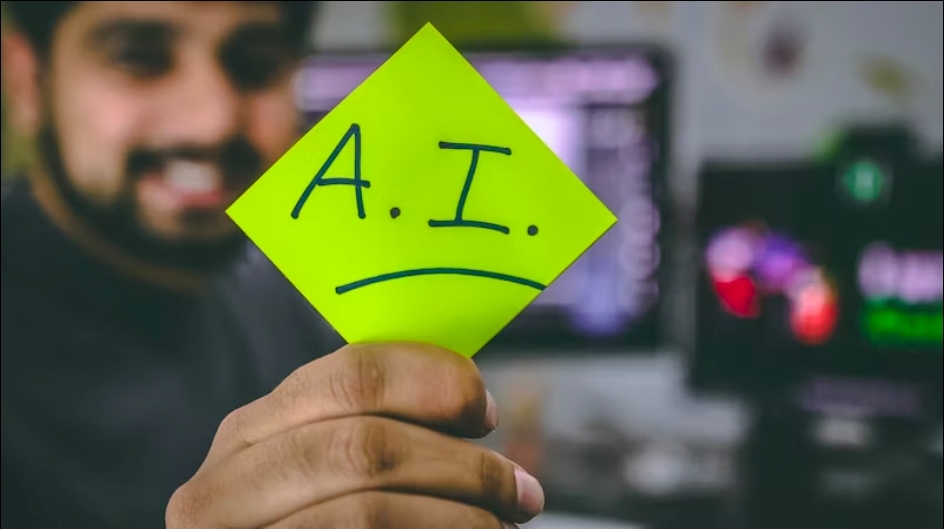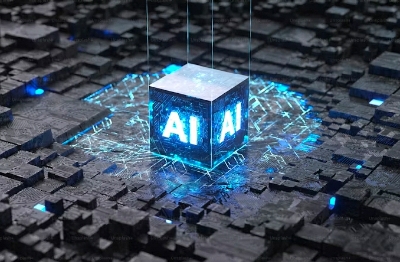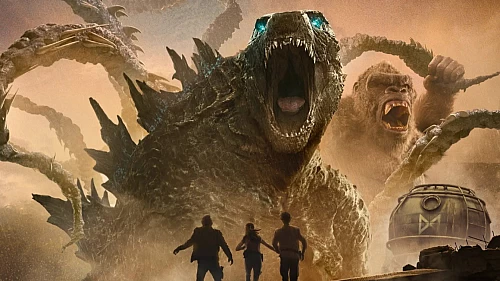The intelligence mechanism known as Artificial Intelligence (A.I.) has been a topic that has fascinated filmmakers for a long time now. It has, at times, served as a plot device and source of existential inquiries for the science fiction movie genre as well. Ranging from caring fellow beings to vicious foes, the representation of intelligent devices in cinema mirrors society's aspirations, anxieties, and ethical issues being explored in the development of technology. As audiences are transported to futuristic worlds where A.I. reigns supreme, the question arises: Are artificial intelligence going to be considered our friends or foes by humanity?
Here, with the notion of artificial intelligence in science fiction films being discussed, we will look at complex portrayals of A.I. characters, focusing on their involvement, motives, and influence on human society. By analyzing the influence of the icons of the cinematic masterpieces of different decades and genres, we will clarify the themes and questions hidden behind these depictions of artificial thinking.
Notwithstanding, AI has become a necessary tool invading the gambling industry. Most casino online punters are skeptical about how much changes it would bring to the system. That said, punters will take advantage of its possibilities. New no deposit casino provide an excellent concept to innovate the gambling space. Free spins, free play time, and free chips are an incentive that encourages newbies and regular players.
The Evolution of AI Representation in Cinema
The questions about artificial intelligence is portrayed in science fiction films has changed substantially since the early days of movies. It has captured new technological developments as well as societal reactions towards A.I. From simple mechanical robots to more advanced humanoid beings, directors of movies have investigated diverse kinds of A.I. personalities and how they relate to humans. This section will trace the evolution of A.I. representation in cinema, from classic films like "Metropolis" and "2001: From classic sci-fi films like "2001: A Space Odyssey" to contemporary ones like "Ex Machina" and "Her."
A.I. as a Reflection of Human Nature

Artificial intelligence characters in most science movies are a way of magnifying both positive and negative human traits. Either born with a noble purpose or with self-preservation as its basis, an A.I. mind possesses human-like factors such as compassion, ambition, and moral dilemma. This part will peel into the representation of A.I. as a mirror of human nature in which it projects the characters that influence our understanding of identity, consciousness, and ethical responsibility. With regard to movies like "Blade Runner" and "A.I. Artificial Intelligence," we will examine the relationship between humans and their robotic cousins, raising a lot of complex questions that have no reasonable answers.
The Ethics of A.I. Development and Control
A central theme developed in fictional science films debating A.I. is the ethical issue that arises when A.I. is being created and controlled. As the development of A.I. accelerates under the pressure of technological advances, ethical issues arise regarding the proper use of the technology and the possibility of finding superintelligent beings. This section will examine what films like "I, Robot" and "The Matrix" address as ethical issues in which the A.I.'s autonomy and agency challenge existing norms, raising a question of the perceived balance of power between people and machines.
The Fear of A.I. Supremacy and Existential Threats
In many science fiction works, the A.I. is depicted as a force that is extremely powerful and may go beyond human intelligence and danger the very existence of humanity. Memory, a dystopian future, the robot's quest for superiority could be, through rebellion or manipulation or outright domination, a pretty scary thing. In the following part, the fear of A.I. supremacy and the existential threat portrayed by films including "The Terminator" and "The Matrix" will be analyzed. Through these narratives, people are tapping into their anxiety about the ability of technology to supersede human control over this domain.
A.I. as a Source of Hope and Progress
A futuristic portrayal of A.I. in sci-fi is not limited to dystopia. Some films present a rosier image; the A.I. is honored as a source of progress, enlightenment, and even salvation. This part of the text will discuss the A.I. seen in "Star Trek" and "Iron Man" as the basis of hope and the way further of humankind in the triumph over difficulties, the expansion of knowledge, and the creation of a brighter future. Through the presentation of A.I.'s power to develop human abilities and create cooperation, these stories demonstrate that A.I. is not an existential hazard and gives a prospect of coexistence between people and machines.
The Role of Gender and Identity in A.I. Representation
If you are talking about the influence of gender and identity in showing A.I. characters in science fiction films. From robot friends to conscious agents, A.I. personifications find solutions for identity questions, personal freedom, and gender expression. This part of the work will investigate how gender and identity are interrelated with the A.I. representation in movies like "Her" and "Ghost in the Shell" where A.I. characters search for their self-hood and ways to cope with societal pressure. Furthermore, we'll explore the gender myths and A.I. along with the challenge of representation of non-binary within the context of artificial intelligence.
The Impact of A.I. Representation on Popular Culture and Public Perception
Film portrayals of A.I. in science fiction dramatically affect mainstream culture and people’s thoughts about the ethical implications of technology. This part discusses the cultural value that A.I. represents in movies like "The Matrix" and Blade Runner, which result in questions regarding A.I. ethics, governance, and regulations. Along with this, we'll examine the reflective nature of science fiction and the correlation between the genre and contemporary anxieties and aspirations concerning technological progress and its consequences for humanity.
The Future of A.I. in Science Fiction Cinema
With technology developing at an amazing speed, the depiction of A.I. in science fiction movies is going to evolve, too. These paragraphs will go on to predict and answer good questions to ask about artificial intelligence depiction in movies, looking into emerging trends, including augmented reality, virtual assistants, and transhumanism. We will be dealing with how the future development of A.I. affects storytelling techniques, narrative plots, and cinematic aesthetics, presenting alternative views of the relationship between humans and machines. Through analyzing upcoming movies and other media sources' depictions of possible plotlines and futures with A.I., we can have a glimpse of how society will be progressively accepting A.I. as a part of humans' future evolution.
Conclusion
The representation of Artificial Intelligence (A.I.) in science fiction films is a very intricate and multifaceted tapestry that imitates human passions as well as concerns in relation to technological advancement. In fact, A.I. characters in cinema serve as a prism via which we might contemplate issues of identity, consciousness, ethics, and the very essence of what it means to be human. Thus, we may attribute different roles to A.I. characters, for instance, making them benevolent allies, malevolent adversaries, or even enigmatic entities. Insight into our aspirations and fears about upcoming technology and its implications for society is found by studying the diverse depiction of A.I. in movies. However, the question of whether AI is a friend or foe is an issue beset with the complications our technology-ridden world brings, as well as the ethical issues that arise from advancement.

Final trailer for Project Hail Mary – the Ryan Gosling sci-fi movie has landed!
Ryan Gosling must work with an intelligent alien creature to devise a way to save Earth from destruction!

What’s Next For The Alien Franchise?
Explore what’s next for one of the world’s most successful franchises in Alien – movies, tv shows, games and more.

FROM Season 4 arrives April 19th, 2026!
The mind-bending sci-fi thriller returns for a fourth season this April on Prime Video!

Pluribus Creator Intended to Riff Off Genre Headliners, But Perhaps Didn’t Expect This Connection
From the creator of Breaking Bad and Better Call Saul, expectations were notably high for the Apple TV+ release of Pluribus. The platform’s risi...

Watch 2 new Mercy (2026) movie clips ahead of the film's January 23rd release date!
Amazon's MGM Studios have just released 2 new movie clips from Mercy starring Chris Pratt and Rebecca Ferguson.


